Puppy Daycare : Why It’s Essential for Your Pup’s Development
Bringing a new puppy into your home is an exciting time filled with joy and new experiences. However, puppies require plenty of attention, socialization, and mental stimulation—things that can be hard to provide when life gets busy. This is where puppy daycare can be a game-changer. Daycare not only keeps your puppy engaged during the day but also supports their development, helping them grow into well-adjusted and confident adult dogs.
In this article, we’ll explore the many benefits of puppy daycare, what to expect from a quality facility, and how to choose the best daycare option for your furry friend. Whether you’re looking for a solution while you’re at work or just want your puppy to burn off some energy, daycare offers a safe, structured environment to meet your pup’s needs.
Why Puppy Daycare Is Important
Puppies go through crucial developmental stages in their early months. During this time, they need social interaction, playtime, and training to develop good behaviors. Puppy daycare provides an opportunity for your dog to socialize with other puppies and people in a controlled environment, which is key to preventing future behavioral issues.
1. Socialization Skills
One of the biggest advantages of daycare is the chance for your puppy to socialize with other dogs. Learning how to interact with other pups helps them develop essential social skills. They learn how to communicate through body language, share space, and play safely, which is important for avoiding aggression or fear later in life.
2. Exercise and Mental Stimulation
Puppies are bundles of energy, and daycare provides them with a fun and safe place to burn off that energy. Without enough exercise and mental engagement, puppies can become bored, which often leads to destructive behaviors like chewing or excessive barking. Daycare helps prevent these issues by giving puppies the physical and mental stimulation they need to stay happy and healthy.
3. Preventing Separation Anxiety
Leaving a puppy alone for long periods can result in separation anxiety, which can be difficult to manage as they grow. Puppy daycare offers a way to prevent this by introducing short separations in a positive, supportive environment. Over time, your puppy learns that being away from you is okay, which reduces the risk of anxiety-related behaviors.
What to Expect from a Quality Puppy Daycare
Choosing the right puppy daycare is essential to ensuring your puppy gets the most out of their experience. Not all daycares are created equal, so it’s important to know what to look for in a facility.
1. Safe and Clean Environment
A well-maintained daycare facility is crucial for your puppy’s safety and health. The daycare should have clean, secure areas where puppies can play without risk of injury. Look for a facility with separate play areas for puppies, to ensure they’re not overwhelmed by larger, more aggressive dogs.
2. Experienced Staff
The staff at the daycare should be experienced in handling puppies, especially when it comes to managing playtime and behavior. Trained staff members know how to introduce puppies to new dogs, prevent rough play, and handle any behavioral issues that arise. They should also have a solid understanding of puppy needs, including feeding schedules and potty breaks.
3. Structured Play and Rest Times
Puppies need a balance of playtime and rest. A good daycare will offer structured activities that include supervised play, training, and periods of rest. Overstimulation can make puppies anxious, so it’s important that the daycare provides quiet spaces for them to nap and recharge.
4. Socialization with Different Dogs and People
Quality daycare facilities understand that puppies need to meet a variety of dogs and people. This helps puppies become well-rounded and adaptable. Ask the daycare how they introduce new puppies to the group, ensuring that interactions are gradual and positive.
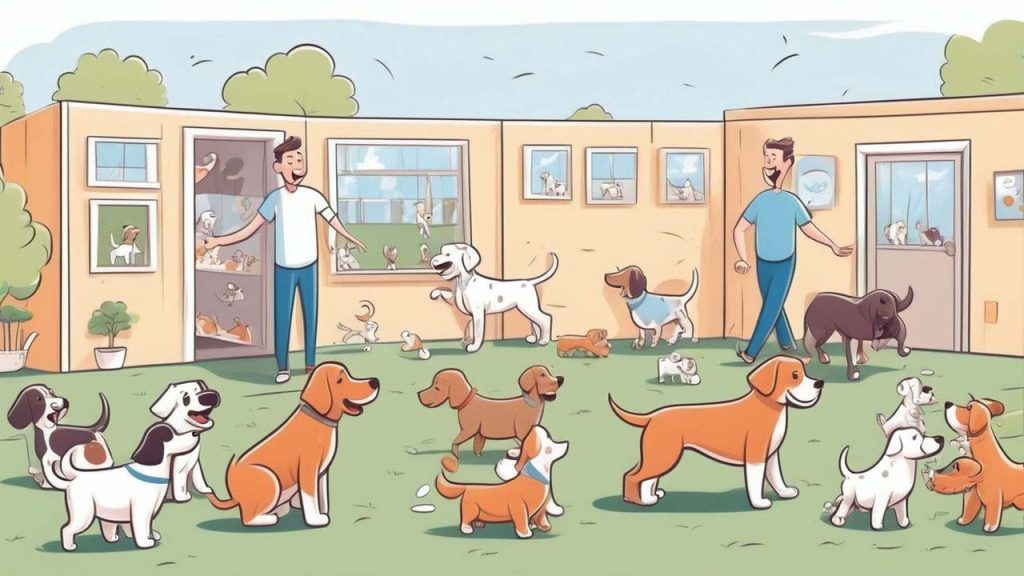
How to Choose the Right Puppy Daycare
Finding the right daycare for your puppy can take time, but it’s worth the effort to ensure your pup gets the best care. Here’s how to evaluate your options:
1. Tour the Facility
Before committing to a daycare, schedule a tour to check out the facility in person. Make sure the play areas are clean, spacious, and securely enclosed. Ask about the staff-to-puppy ratio, as proper supervision is key to keeping your puppy safe.
2. Meet the Staff
During your visit, take the time to meet the staff. Ask about their experience with puppies and how they handle common puppy behaviors like play biting or overexcitement. It’s important that the staff are knowledgeable, friendly, and dedicated to providing a safe, nurturing environment.
3. Check for a Trial Day
Many daycares offer a trial day or evaluation period where your puppy can spend a few hours at the facility. This is a great way to see how your puppy reacts to the new environment and how the staff interacts with them. Use this time to observe your puppy’s behavior and comfort level.
4. Ask About Health and Safety Protocols
Your puppy’s health is a top priority. Ensure the daycare requires all puppies to be vaccinated and free of contagious illnesses before attending. Also, ask about their cleaning routines and how they handle emergencies.
Benefits of Regular Puppy Daycare Visits
Once you’ve found the right puppy daycare, making regular visits part of your routine can have lasting benefits for both you and your puppy. Here’s why consistency is key:
1. Builds Confidence in Your Puppy
Puppies that attend daycare regularly learn to adapt to new environments and situations, which builds their confidence. They become more comfortable around other dogs, different people, and varying surroundings, making them better equipped to handle new experiences as they grow.
2. Aids in Potty Training
Daycare can also help with potty training, as most facilities have set potty break schedules. This helps reinforce good habits and teaches puppies to relieve themselves in appropriate areas.
3. Provides Relief for Busy Owners
For pet owners with busy schedules, daycare provides a solution to ensuring your puppy gets enough attention and exercise. Instead of feeling guilty about leaving your pup home alone, you can rest easy knowing they’re having fun, staying active, and receiving care.
Preparing Your Puppy for Daycare
To ensure your puppy has a positive experience at daycare, it’s important to prepare them ahead of time. Here are a few tips:
1. Socialize Early
Before enrolling in daycare, expose your puppy to different people, environments, and other dogs. This helps them adjust more easily to the daycare setting. Early socialization reduces the risk of your puppy feeling overwhelmed or anxious.
2. Pack Essentials
Bring any necessary items to daycare, such as your puppy’s favorite toy, a blanket that smells like home, or a special treat. These familiar items can help ease your puppy’s nerves during their first few visits.
3. Start with Short Stays
For puppies that are new to daycare, it’s a good idea to start with short stays. Gradually increase the time they spend there to help them adjust to the new routine.
FAQs About Puppy Daycare
How old should my puppy be to attend daycare?
- Most daycares accept puppies who are at least 12 weeks old and have received their first round of vaccinations.
How much does puppy daycare cost?
- The cost of puppy daycare varies depending on location and services but typically ranges from $20 to $40 per day.
Is puppy daycare safe?
- Yes, as long as you choose a reputable daycare with experienced staff and proper safety protocols. Always tour the facility and ask about health and safety standards before enrolling your puppy.
Can daycare help with training?
- Many daycares offer basic training services as part of their program. This includes reinforcing commands like “sit,” “stay,” and leash manners, which can complement the training you do at home.
Will daycare help my puppy sleep better at night?
- Yes! After a day filled with playtime, socializing, and exercise, puppies often come home tired and ready for a good night’s sleep.



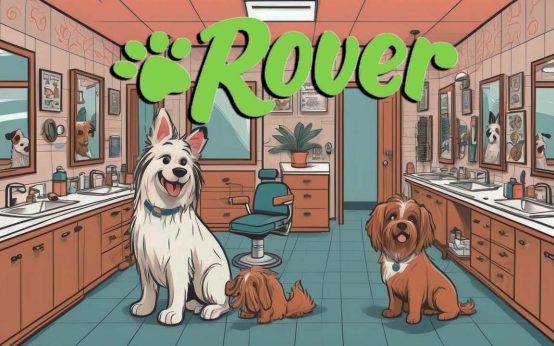 Rover Oaks Grooming | Pampering Your Pet with Professional Care
Rover Oaks Grooming | Pampering Your Pet with Professional Care 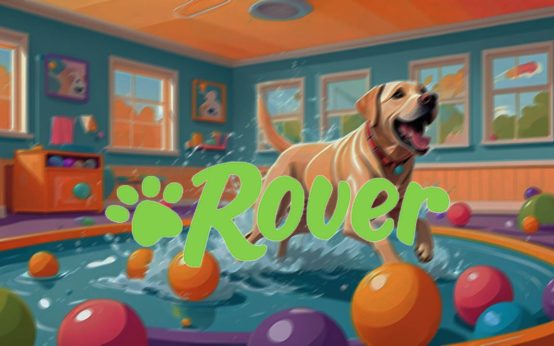 Rover Dog Daycare | Reliable Daytime Care for Your Dog
Rover Dog Daycare | Reliable Daytime Care for Your Dog 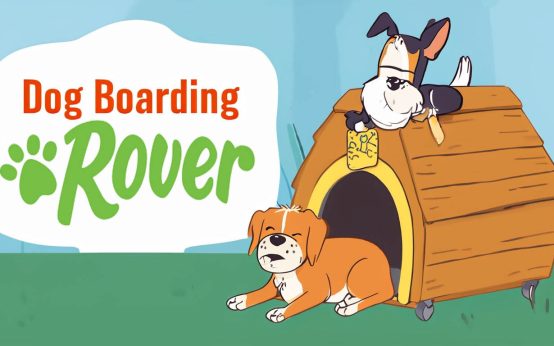 Rover Dog Boarding | Trusted Care for Your Pet
Rover Dog Boarding | Trusted Care for Your Pet  Dog Overnight Boarding | Find Safe, Reliable Care for Your Pet
Dog Overnight Boarding | Find Safe, Reliable Care for Your Pet 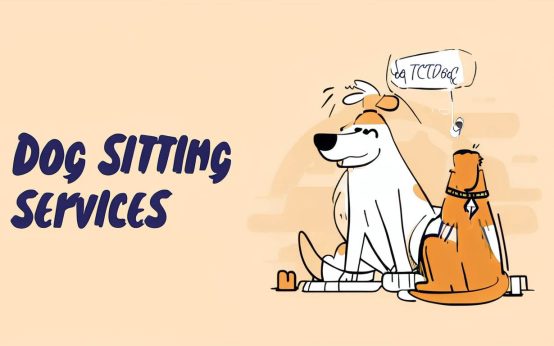 Top Dog Sitting Services | Find Reliable Care for Your Pet
Top Dog Sitting Services | Find Reliable Care for Your Pet  PetLab Joint Care | Improve Your Dog’s Mobility and Comfort
PetLab Joint Care | Improve Your Dog’s Mobility and Comfort